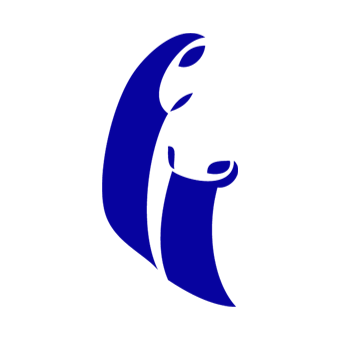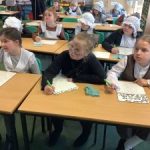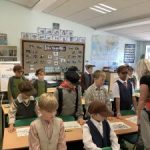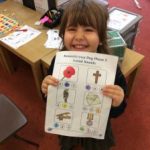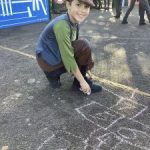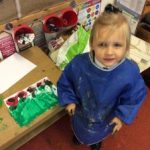Introduction
Experiences in History should promote pupils having a personal history, a sense of place and a set of relationships, which provide the starting point for much of their intellectual understanding and growth. Pupils should compare and contrast their own histories with those of people separated by time or distance. Tasks should be structured which allow pupil opportunities to develop critical awareness of similarities and differences between people, places and events.
It is through History that children make sense of their world and enrich their understanding of it. It is a tool of learning and communication and the skills developed through the study of the History are applicable in everyday life. It fires curiosity about life and lives both past and present in Britain and the wider world.
History is taught in half termly blocks in most classes. In Upper KS2 they are taught each half term in a week long block. This is so we can fully concentrate on the build up and progression of skills, knowledge and content while not being distracted by the demands of other subjects in Years 5 &6. This has been trialled successfully and is now adopted.
Aims
Good history teaching aims to:
• Help pupils gain a coherent knowledge and understanding of Britain’s past and that of the
wider world;
• Inspire pupils’ curiosity to know more about the past;
• Equip pupils to ask perceptive questions, think critically, weigh evidence, sift arguments
and develop perspective and judgement.
• Help pupils understand the complexity of people’s lives, the process of change, the
diversity of societies and relationships between different groups, as well as their own identity
and challenges of their time.
(Taken from the New Primary History Curriculum -Reference: DFE-00186-2013)
History Curriculum Objectives
EYFS
Topaz children have the opportunity to develop their Historical skills through child initiated activities and focus activities. The focus activities vary between ‘in the moment’ activities led by an adult or planned activities depending on the children’s interests or class theme at the time. In addition a variety of materials , media and tools are available on a daily basis for exploring and experimenting to develop creative ideas and skills.
Key Stage 1
Pupils should develop an awareness of the past, using common words and phrases relating to the passing of time. They should know where the people and events they study fit within a chronological framework and identify similarities and differences between ways of life in different periods. They should use a wide vocabulary of everyday historical terms. They should ask and answer questions, choosing and using parts of stories and other sources to show that they know and understand key features of events. They should understand some of the ways in which we find out about the past and identify different ways in which it is represented.
Pupils will be taught about:
• changes within living memory. Where appropriate, these
should be used to reveal aspects of change in national life;
• events beyond living memory that are significant, nationally or globally;
• the lives of significant individuals in the past who have contributed to national and
international achievements. Some should be used to compare aspects of life in different
periods;
• significant historical events, people and places in their own locality.
Key Stage 2
Pupils will continue to develop a chronologically secure knowledge and understanding of British, local and world history, establishing clear narratives within and across the periods they study. Students will note connections, contrasts and trends over time and develop the appropriate use of historical terms. Students will regularly address and sometimes devise historically valid questions about change, cause, similarity and difference, and significance. Students will construct informed responses that involve thoughtful selection and organisation of relevant historical information. Students will understand how our knowledge of the past is constructed from a range of sources.
Pupils will be taught about:
• changes in Britain from the Stone Age to the Iron Age;
• the Roman Empire and its impact on Britain;
• Britain’s settlement by Anglo-Saxons and Scots;
• the Viking and Anglo-Saxon struggle for the Kingdom of England to the time of Edward the
Confessor;
• a local history study;
• a study of an aspect or theme in British history that extends pupils’ chronological
knowledge beyond 1066;
• the achievements of the earliest civilisations – an overview of where and when the first
civilisations appeared and a depth study of one of the following: Ancient Sumer; The Indus
Valley; Ancient Egypt; The Shang Dynasty of Ancient China;
• Ancient Greece – a study of Greek life and achievements and their influence on the western
world;
• a non-European society that provides contrasts with British history – one study chosen
from: early Islamic civilisation, including a study of Baghdad c. AD 900; Mayan civilisation c.
AD 900; Benin (West Africa) c. AD 900-1300.
History curriculum planning (Using Rising Stars Voyager scheme)
Due to having mixed aged classes, planning is carried out on a two year cycle to ensure continuity and progression so that children are challenged as they move up through the school. Differentiation is used to ensure all children are able to achieve yet still being given the opportunity to be challenged. We acknowledge that pupils’ achievement is enhanced through lessons that are active, inspiring and that have plenty of opportunity for children to challenge and lead their own learning. To this end we provide pupils with a range of sources of information to find out about the topics being taught.
Inclusion
Our teaching of History forms part of the school ethos to provide a broad and balanced education to all children. To achieve this we provide learning opportunities that match the needs of all children and we take into account the targets set for individual children in their SEN Support Plans (IEPs). Planning, teaching and learning in History, sets high expectations for all children. Work is differentiated through content and by outcome to suit individual needs. It provides opportunities for all children to achieve including: boys and girls, children with SEN, children with disabilities, more able children, and children from all social and cultural backgrounds.
Teachers are aware that children bring to school different experiences, interests and strengths that will influence the way in which they learn. We recognise the fact that in all classes there are children of a variety of abilities and we seek to provide suitable learning opportunities for all children by matching the challenge of the task to the ability of the child.
Resources
Resources available include: reference books, textbooks, DVDs, teacher prepared materials, pictures, photographs, and artefacts.. Resources are kept mainly in classes.
Assessment
One of the important aspects of assessment is that it supports future planning and teaching of history. At St Bernadette’s assessment for learning (AFL) is integrated in all parts of the teaching and learning process.
The assessment of History is undertaken continuously by class teachers and other teaching staff whilst pupils are engaged in tasks.
Children’s work also provides evidence of learning and skills acquired. The cross-curricular nature of History means that children are able to explore themes, ask questions and problem solve through Drama, Art, DT, ICT, PSHE, RE
Valuing children’s work is vital to their continued motivation, enjoyment and the empowerment of their learning and evidence of skills and understanding can therefore be sourced from a wide range of work – photographs, books, models, writing, art and videos of children’s work are displayed around school, on the website and stored on the server.
Documents
- History Curriculum CYCLE A-B.pdf pdf1.2 MbSep 4th, 2025
- History Curriculum Vocabulary Progression.pdf pdf110.7 KbSep 4th, 2025
- History policy 22.pdf pdf93.8 KbJul 6th, 2023
- History Skills Progression.pdf pdf659.5 KbSep 4th, 2025
- Humanities Overview.pdf pdf122.6 KbFeb 12th, 2025
- National Curriculum History.pdf pdf132.8 KbJul 7th, 2023
